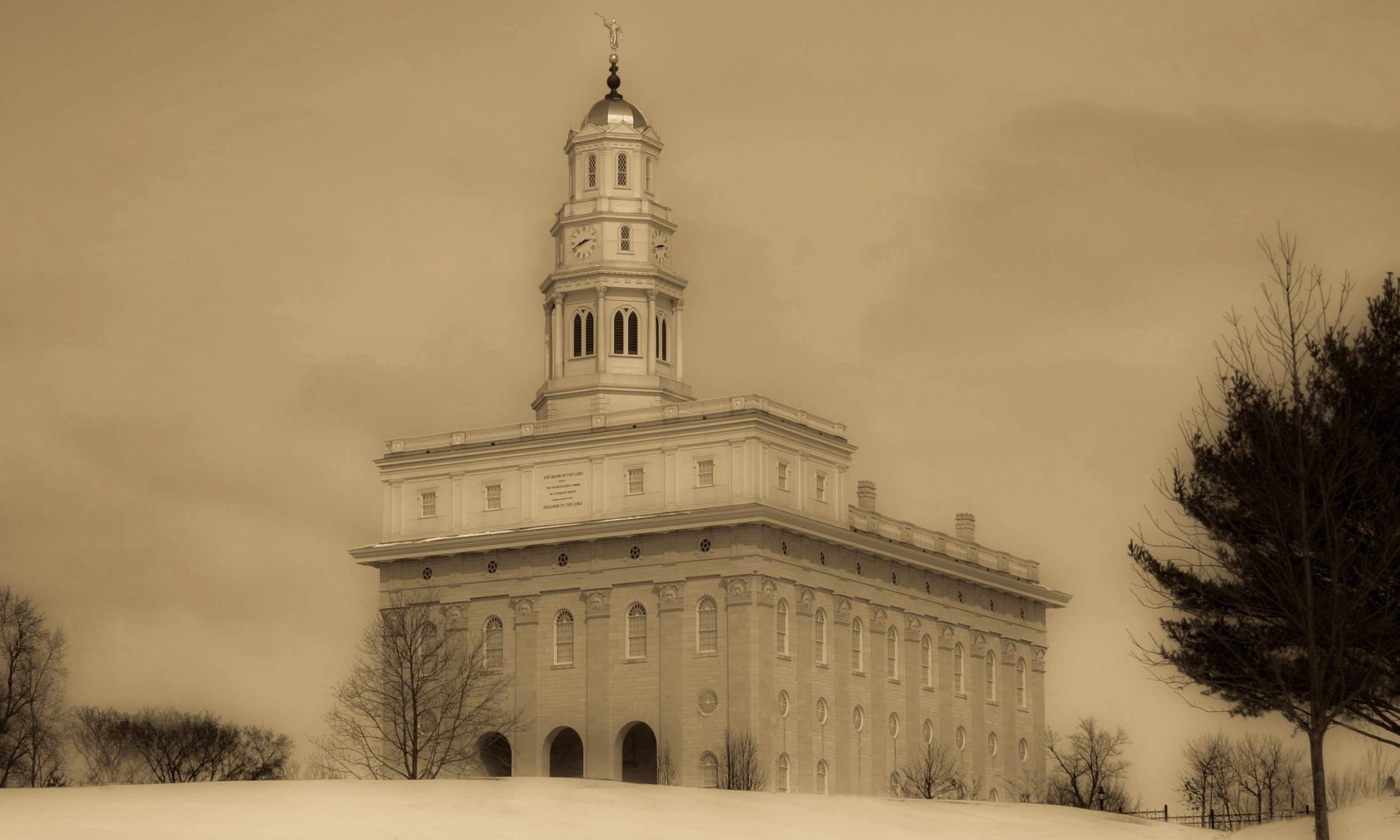Summer is definitely here; she had no hesitancy whatsoever in emerging on the heels of a spring which spent barely a week or two in our neck of the woods due to the slothfulness of winter’s exit. It leads one to scratch their heads in wonder at what the seasons are about. Are they confused? Having a natural schedule they should know when to arrive and when to exit but as the years have passed it seems as if the weather patterns are off and the climate is in unrest.
As I was musing over the weather it brought to mind how the changing seasonal patterns parallel the change in our social and spiritual climate. We live in a noisy world today, filled with much division and contention. Such reflections moved me to remember a passage of Joseph’s life when he had to deal with division in his own family.
Division is the adversary’s greatest weapon. He has used it throughout history in an effort to thwart Heavenly Father’s plan, and the children of God have received the heaviness of its effect. Many minds can be so consumed with the weight of it that they forget to whom they should look to in order to find balance in the face of affliction and chaos. When division came into Joseph’s own family, he handled it with great humility and reason. I have always looked to that example when I am ever faced with contention and division.
In 1836, William Smith had organized a school of debate. Joseph knew nothing of this; in fact, he only found out when he walked in during one of the sessions. His interest was piqued as he sat and listened. He thought it a good thing to have healthy conversations between those who disagreed upon certain topics. He felt that if the debates were in the spirit of goodness that it was a means of gaining knowledge. Joseph decided to attend the next gathering.
It was on a Wednesday, December 18th, and Joseph had joined in to listen to a debate that had continued from the Saturday previous. The meeting had moments of heated discussion, which led Joseph to feel that continuing the school of debate might not be good for it would stir tempers to a point that would lead to contention and division. To this William became enraged and would not be calmed, physically attacking Joseph and causing further injury to his side which had been damaged in a previous attack by the mob. Joseph wrote in his journal that he could barely sit or stand without assistance. He also wrote;
“…my heart is pained within me because of the difficulties that exist in my father’s family.” (1)
Consumed with sorrow over how he had acted against his brother, William wrote to Joseph asking for forgiveness. His words are very telling in how the adversary moves upon us in a manner that is so deceptive that we do not realize that it is an evil spirit which causes us to be contentious.
William calls to attention in his letter, that he is known for his rise to passion but he acknowledges that he was not himself when it happened.
“When I reflect upon the injury I have done to you I must confess I do not know what I have been about..” (2) In this statement, it is clear that something came over him. Then William writes that he is unworthy to be called a brother, “…after coming to myself and considering upon what I have done.” (3) In both of these lines, William is describing what happens when one is taken over by darkness. Saying that he did not know what he was about and that he came back to himself is indicative of a power taking someone over. In a tender response, Joseph willingly forgives William, but there are also words of caution in the letter concerning William’s behavior.
“…however hasty or harsh I may have spoken at any time to you, it has been done for the express purpose to warn, exhort, admonish, and rescue you from falling into difficulties and sorrows which I foresaw you plunging into by giving way to that wicked spirit, which you call your passions, which you should curb and break down and put under your feet, which if you do not you never can be saved, in my view, in the Kingdom of God.” (4)
Joseph has plainly said in his letter to William that his tendency to rise to a passion is indeed a wicked spirit but even more important is his admonition to conquer those passions, for not doing so could prevent his entering the Kingdom of God. This powerful statement has the support of the 2nd greatest commandment which is found in Matthew 22:39-40
39 And the second is like unto it, Thou shalt love thy neighbour as thyself.
40 On these two commandments hang all the law and the prophets. (5)
All the law and the prophets hang upon these two commandments, meaning that if we fail to abide by those two commandments all else is lost, and we have no hope of entering the Kingdom of God. It matters not how many other marvelous works we do or that we love and help many people, if we are hating even one and not striving to overcome our “passions” against that person then we are not doing all we can to employ the 2nd greatest commandment. 1st John 4:20, 21 breaks it down even further;
20 If a man say, I love God, and hateth his brother, he is a liar: for he that loveth not his brother whom he hath seen, how can he love God whom he hath not seen?
21 And this commandment have we from him, That he who loveth God love his brother also. (6)
On January 1, 1836, Joseph wrote, “…My heart is filled with gratitude to God, that He has preserved my life and the lives of my family while another year has rolled away. We have been sustained and upheld in the midst of a wicked and perverse generation and exposed to all afflictions, temptations, and misery that are incident to human life…” (7)
Joseph speaks of the wickedness of his generation, oh how that wickedness has spread and evolved into a greater darkness in our generation! Division and contention have become rife among the Saints in these times. One but has to read through all of the scriptures to see a pattern of division and contention, making these two ploys the adversary’s choicest weapons. It falls to us to rise up to the challenge of recognizing when our passions are being aroused to anger and calling upon the Lord to help us calm them and replace chaos with peace, contention with good will, and division with unity.
Indeed, the weather does have a pattern. The seasons will come and go that is a surety, they have no choice for they are designed to perform such a task. As such, storms will build up and express themselves upon people who scurry to find shelter. But we have a choice whether or not to let storms build within ourselves. We have but to reach for the Savior’s hand to get help in tempering those storms, creating a peace within ourselves so that we may love one another.
-
Jesse, Dean, ed. Personal Writings of Joseph Smith:Deseret Book, 2002. (2nd ed. pp 138-143)
-
IBID
-
IBID
-
IBID
- King James Bible. Intellectual Reserve Inc., 2018. www.lds.org,
https://www.lds.org/scriptures/nt/matt/22?lang=eng - King James Bible. Intellectual Reserve Inc., 2018. www.lds.org, https://www.lds.org/scriptures/nt/1-jn?lang=eng
-
Jesse, Dean, ed. Personal Writings of Joseph Smith:Deseret Book, 2002. (2nd ed. pp 138-143)

